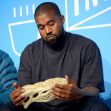Warby Parker successfully dodged a trademark infringement lawsuit brought by 1-800 Contacts claiming that Warby Parker was buying keywords to push their paid advertisements higher up on search engine result pages, diverting potential customers away from the 1-800 Contacts website.
U.S. District Judge Kevin Castel ruled that the ads were unlikely to confuse potential customers and reasoned that the trademarks owned by each company were too dissimilar to confuse potential buyers. Castel ruled in favor of Warby Parker and further commented that customers know what they are looking for. If consumers truly wanted the products from 1-800 Contacts, they would be able to decipher on their own which company they were buying from.
In 2019, Warby Parker ventured into the contact lens industry, expanding from its original brand of only selling eyeglasses. In August 2021, 1-800 Contacts filed a lawsuit claiming that Warby Parker had redesigned its contact lens webpage to look similar to that of 1-800 Contacts while buying search-engine keywords to confuse potential customers.
Google and other search engines allow individuals and companies to buy virtual advertisement space on the results pages by paying the search engine provider to show their advertisement when a user searches specific terms, such as “contact lens” or “glasses near me.” In this case, 1-800 Contacts argues that Warby Parker paid for advertising space on search engines’ result pages for anytime a user typed the words “1-800 Contacts” into the search engine. Companies can choose the location and the budget on how much they want to spend each day for the use of this service.
Google and Microsoft Bing, for example, will place those paid advertisements at the top of the result page but put “Ad” next to the result, to distinguish it from the organic search results. But 1-800 Contacts claims that Warby Parker’s landing page “deceptively and intentionally mimics the look and feel of [their website] including through the use of a confusingly similar color scheme, layout, and discount offering.”
The complaint continued to allege that 1-800 Contacts had to “spen[d] substantial sums to outbid Warby Parker on paid search results” and that they were not always successful in securing “the critical top search result position,” feeding into their unfair competition claim.
Under the Lanham Act, also known as the Trademark Act of 1946, a trademark is any mark (word, phrase, etc.) that is used in commerce and is distinctive. Congress passed the bill under President Harry Truman to protect trademarks and service marks and to protect against unfair competition. To file a lawsuit under the Lanham Act, an individual or company has to demonstrate that they legally own a registered mark and that the use of the mark by the defendant could likely cause confusion among potential consumers.
1-800 Contacts states that they “started in a dorm room in 1995” and became the first company to sell contacts online. They advocate for telehealth alternatives in each state to reduce the cost of eye exams and prescriptions. They claim that their goal is to reduce the ability of manufacturers to inflate the costs of contacts and for traditional physical retail and eye doctor places to inflate the price of exams and prescriptions.
Forbes recently named Warby Parker a stand-out example of “how retailers are breaking digital boundaries” and lauded the company for its Virtual Vision Test app. Released in the US, it allows customers to take an exam on their phone to renew prescriptions with results in up to two days. This application is a way for the company to move more sales online while simultaneously saving US consumers money.
Both companies have similar visions to reduce the cost to consumers. For Warby Parker, it started to make glasses cheaper and then moved into the contact lens industry in the fall of 2019 with “Scout by Warby Parker.” While Warby Parker still has traditional brick-and-mortar retail stores, 1-800 Contacts relies entirely on their website for sales and eye exams.
A 1-800 Contacts spokesperson commented that the ruling is "inconsistent with several well-established legal principles," but that they have not decided if they will appeal or not.






